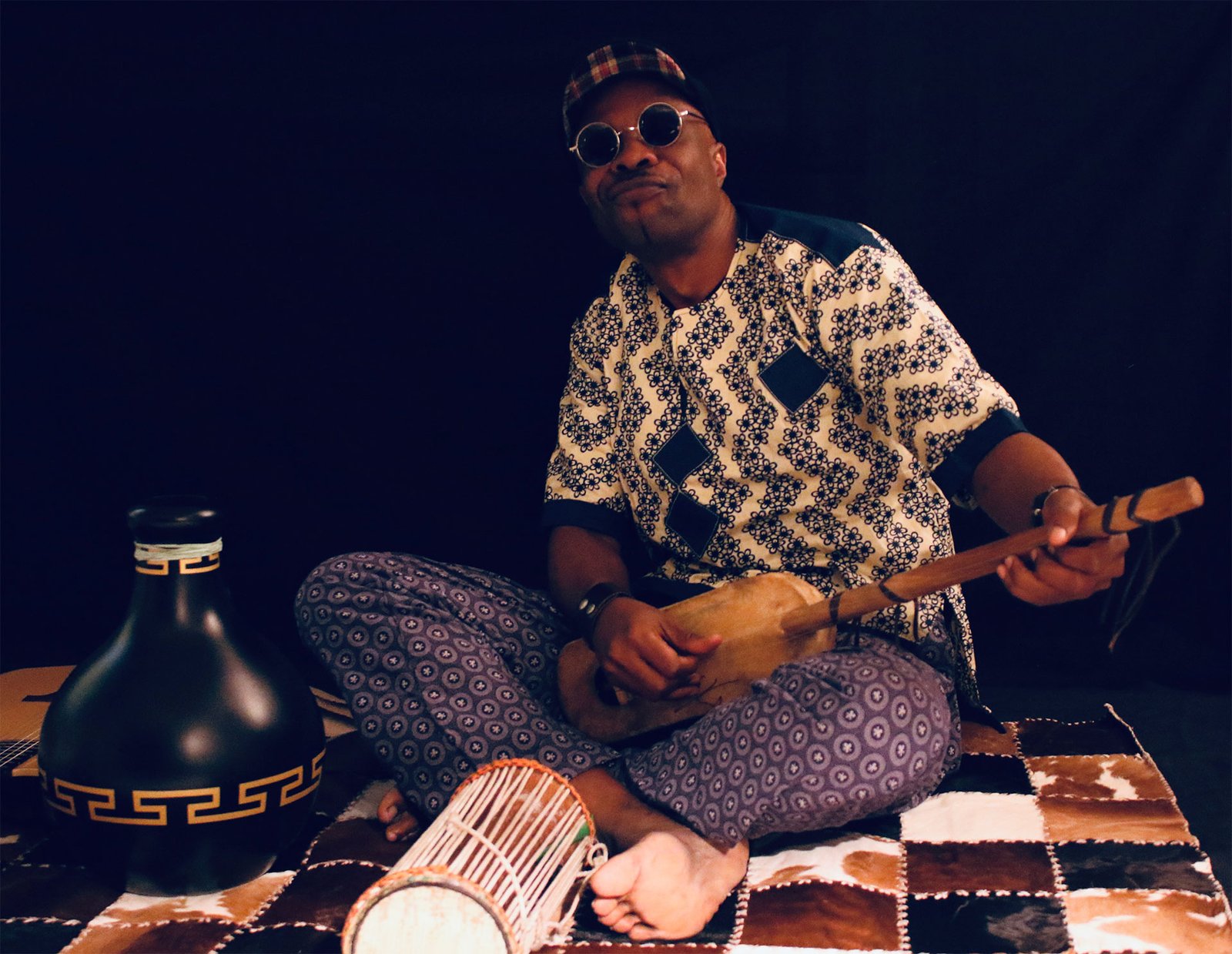biography

John Bashengezi, known by his stage and childhood name as “Jaja”, was born and raised on the peaceful shores of Lake Kivu in Eastern Congo, in the town of Bukavu. Music was part of daily life in his household. Jaja and his friends would improvise instruments out of tin cans, rubber, bicycle parts and whatever was around, and sing together in the street. His musical childhood set the course of his life and career.
In the 1980s and ‘90s, Jaja was a student, but he still pursued music with a passion. He played in church groups and in nightclub bands in Bukavu and across the border in Burundi, and eventually led his own group Fuji Yama (Super Joy), which found radio success in the region. Jaja created a popular group at university as well. He did not shy from singing about the dark clouds of xenophobia and tribal politics gathering in neighboring Rwanda. Jaja graduated college in 1994 just as the Rwandan genocide began to spill over into eastern Congo. Over the next few years, Kivu Province deteriorated into a surreal, lawless place of war and massacre, kidnapping and rape as rebels overran Bukavu on their way to the Congolese capital of Kinshasa. Students and musicians, along with clergy, politicians and journalists, became targets for the spreading virus of hate and tribalism.
People were fleeing cities en masse for the relative safety of villages. The Congolese nightmare had begun, and Jaja was forced to flee for his life. Carrying only a small bag and his acoustic guitar, he crossed Lake Kivu heading north to the city of Goma, then rode on a truck full of merchandise to Kampala, the capital of neighboring Uganda. In Kampala Jaja was granted refugee status and sent to the camps. But the sound of his guitar soon led Jaja straight back to the city where he became one of Kampala’s top soukous musicians. He played with popular dance bands, worked with visiting stars like Habib Koite and French blues harmonica player Jean-Jaques Milteaux, and in 2002 released his first solo album, an African contemporary gospel CD entitled Testimony.
Jaja’s talent also brought him to the attention of one of the larger churches in Kampala where he was invited to join their growing Watoto Children’s Choir as composer, arranger and guitarist. He was a caretaker for the children of the choir as well, all of whom had lost their parents to AIDS. In partnership with Save the Children, Watoto toured Africa, Australia, Canada and the U.S. where in 2003 they performed at the White House as part of a Global Fund event.
In 2010 while touring in North America, Jaja connected with legendary Congolese vocalist Samba Mapangala (Orchestra Virunga). Jaja became Mapangala’s guitarist and eventually his producer. As lead guitarist with Mapangala, he performed at Lincoln Center along with NYC-based soukous greats Ngouma Lokito (bass) and Lokassa ya Mbongo (guitar). Over the next few years Jaja toured with the band, producing and arranging Mapangala’s recordings, and the pair recorded an acoustic album released in 2016.
In 2013, Jaja also reconnected with Ugandan traditional musician Kinobe. Their collaboration quickly took wing with performances throughout North America promoting their album Rafiki. Working with Kinobe subtly shifted Jaja’s thinking about the music he was making, and introduced him to the concept of world music. He developed an abiding interest in learning traditional instruments and finding ways to express himself musically outside the conventions of a soukous band. This exploration and open-minded approach brought him to the attention of some of the top young artists on the world music scene, particularly from Mali. Jaja toured for two years as bass player for Malian superstar Vieux Farka Toure and was the bassist and bandleader for Malian star Fatoumata Diawara’s U.S. tours beginning in 2014.
Jaja now composes in six languages (French, English, Swahili, Lingala, Luganda and Mashi), and draws inspiration from the music of Madagascar, Mali, Uganda, South Africa, and of course his beloved Congo. Jaja has even taught himself to play likembe (thumb piano), Malian ngoni (4-string harp) and various other traditional instruments to bring different colors and textures to his arrangements. His journey has been difficult, but it has forged in him the richly unique and resonant voice he now shares with the world through music. “Life is the presence of sound. Death is the absence of it. Every sound is music”
Jaja’s ever-unfolding path has led him into music production. He has opened a recording studio in Woodbridge, Virginia, where he helps refugees from various parts of the world who cannot afford standard recording fees, helping them to achieve their dreams as he has his own. Jaja is also a founder and director of Rafiki, a 501(c )(3)nonprofit community foundation dedicated to empowering talented young people to succeed and realize their goals in the communities where they live.